Arriving at sunset, the city of Tempe resembles a glistening desert oasis—crystalline air, kaleidoscopic skies, and dozens of jewel-like buildings all sleek and bright against the darkening horizon. In true oasis fashion, this inner Arizona suburb has a dramatic waterfront along the Salt River and Tempe Town Lake reservoir. I’ll come to find out that mornings along Tempe Town Lake are bustling with local runners, bikers, pet owners, and kite-fliers. Add to that a major university and academic institution mere blocks from the water, and you’ve got a city that feels both grounded and dynamic, community-oriented and cosmopolitan. Needless to say, Tempe is a unique abutment. One that is best embodied by places like Café Lalibela, a delightful Ethiopian restaurant tucked away in a quiet strip mall off University Drive.


The family behind the cafe
Café Lalibela has been a fixture of Arizona’s dining scene since 1996, when it opened as the state’s very first Ethiopian restaurant. Named after a foundational Ethiopian king of the 12th and 13th centuries, the small, square-shaped cafe has always been fueled by love—a fact that became very evident during the long months of COVID-19 slowdowns, when diners from all over the state made a point to stop by and support Café Lalibela however they could.
Family-owned and operated, Café Lalibela is managed by Anibal Abayneh, staffed by his wife Salem, and regularly presided over by Salem’s mother, Atsade Desta. It’s clear that Atsade is the matriarch and true heart of the restaurant. And despite cutting a rather glamorous figure in her gleaming white chef’s coat, she’s still doing most of the food preparation and cooking 20 years later.
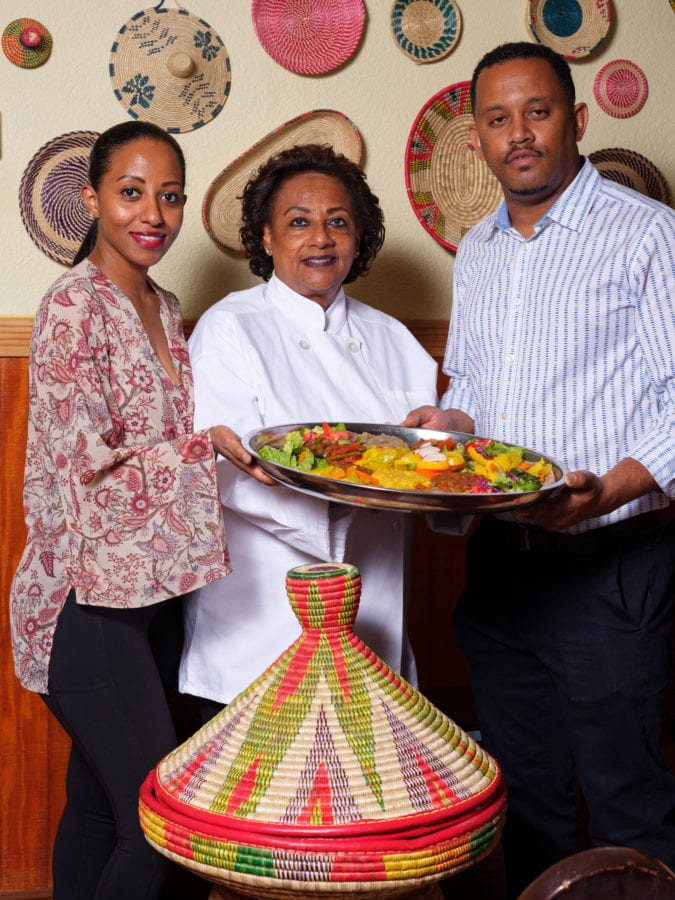
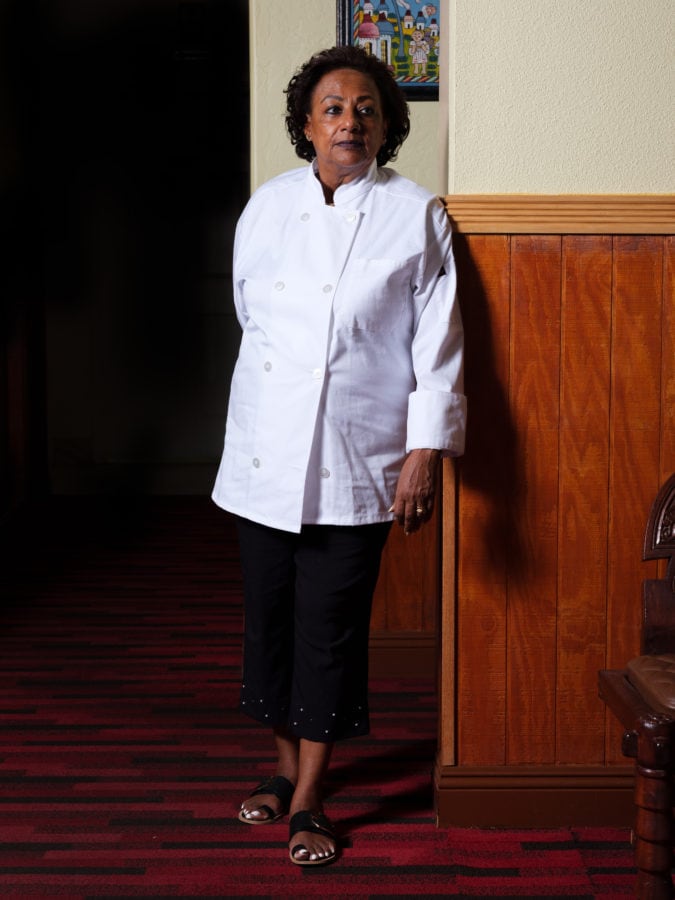
Tradition covers the walls
Stepping inside Café Lalibela on a warm spring afternoon, I immediately recognize how simple and sincere the space is. The ground is trimmed in a resplendent vermilion carpet and the walls are adorned with traditional Ethiopian woven baskets, both of which add texture and color to the main dining room. Sitting among the ornate collection of hand-carved chairs and traditional mesobs (woven baskets that act as tables to house platters of communal food) is an eclectic mix of customers, all of whom eagerly watch as piping hot dishes file out of the back kitchen.
Anibal is my gracious host and dining companion this afternoon while the other family members move about the cafe, cooking food and serving guests. As we sit down, Anibal begins to share a bit about himself, his move to Arizona, and the story behind the cafe.
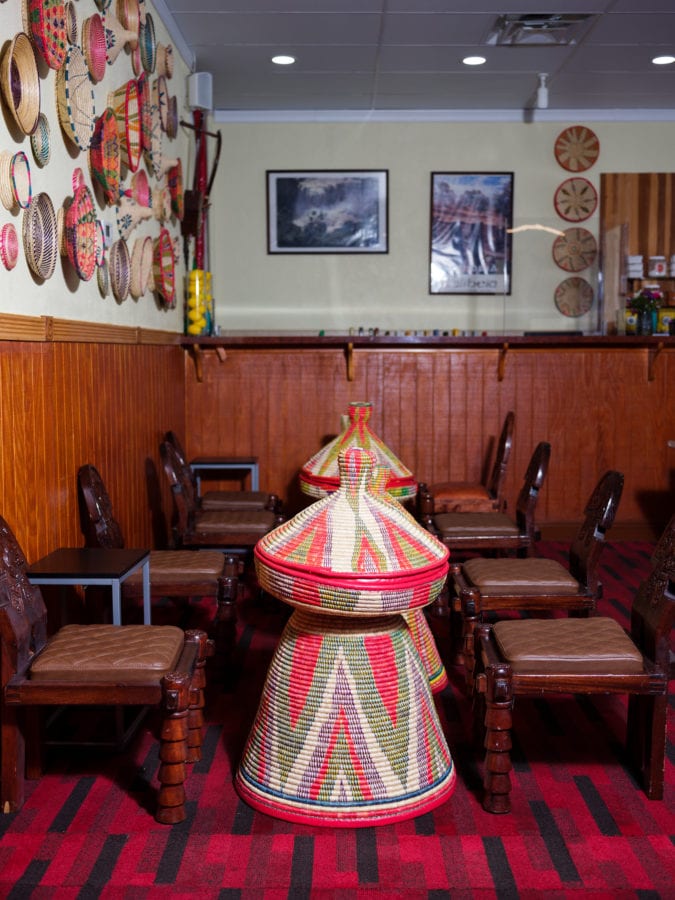
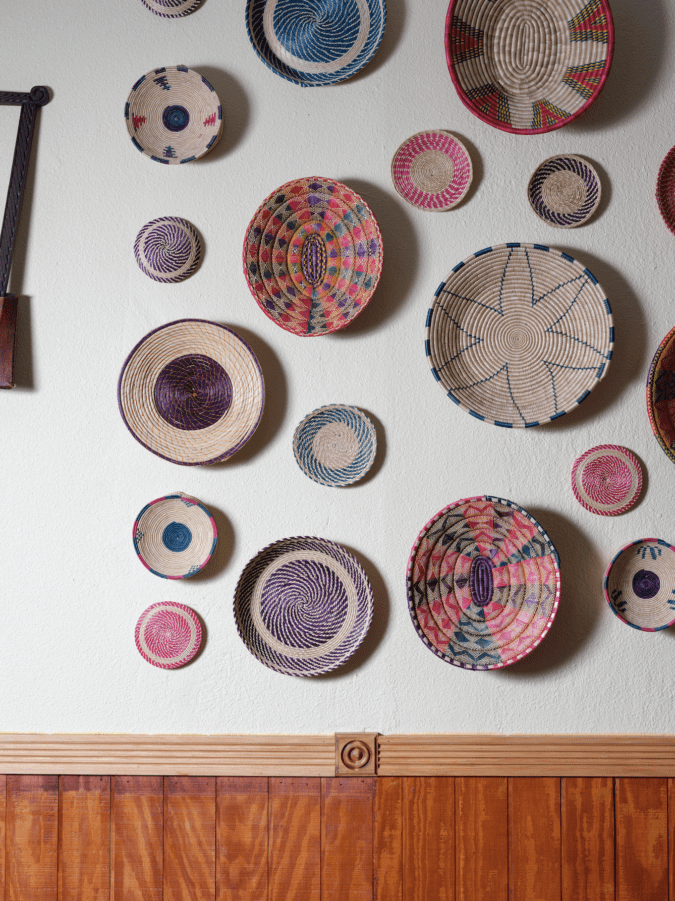
Sun every day
Anibal first left Ethiopia 15 years ago to move to Fort McMurray in the far northern reaches of Alberta, Canada. He later moved to Calgary before finally making his way down to Arizona to help his mother-in-law start the cafe.
“When I first arrived in Canada, it was a whole new world for me. The sky was white, the ground was white, all of the people were white!” he says. “I love it up there. I love Canada and I like the slower pace of life, but it was just the complete opposite of [Arizona]. Here, it’s sun every day. There is so much activity and the community is so supportive.”
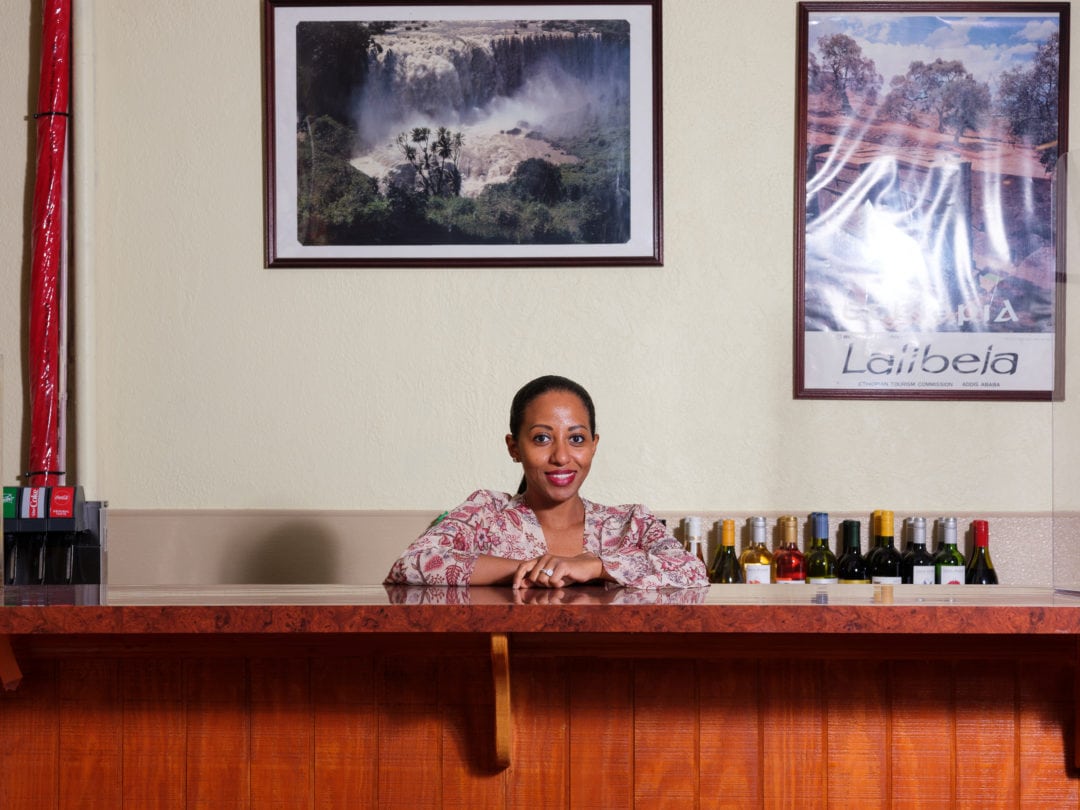
We continue to talk about the future of Tempe, living far away from home, and the centrality of family, all of which are intimately interwoven in his life. At one point, Anibal credits Café Lalibela’s survival during the COVID-19 pandemic to its family-centric structure. “So many places have gone out of business. We’re able to be here now because we can pool our resources and work together as a family,” he says.
The main event
Anibal shares his story over the main event: Café Lalibela’s food. Ethiopian cuisine is traditionally eaten without utensils but instead uses injera, a fermented, gluten-free bread made from teff that diners rip and grab their food with. The injera’s spongy texture and slightly bitter flavor complements the sophisticated, nuanced spice palette of the main dishes. Everything I sample has such a perfect balance of salt, fat, heat, acid, sweet, and umami. It’s no wonder so many Arizonans (or Californians, in my case) are willing to drive several hours to eat here.
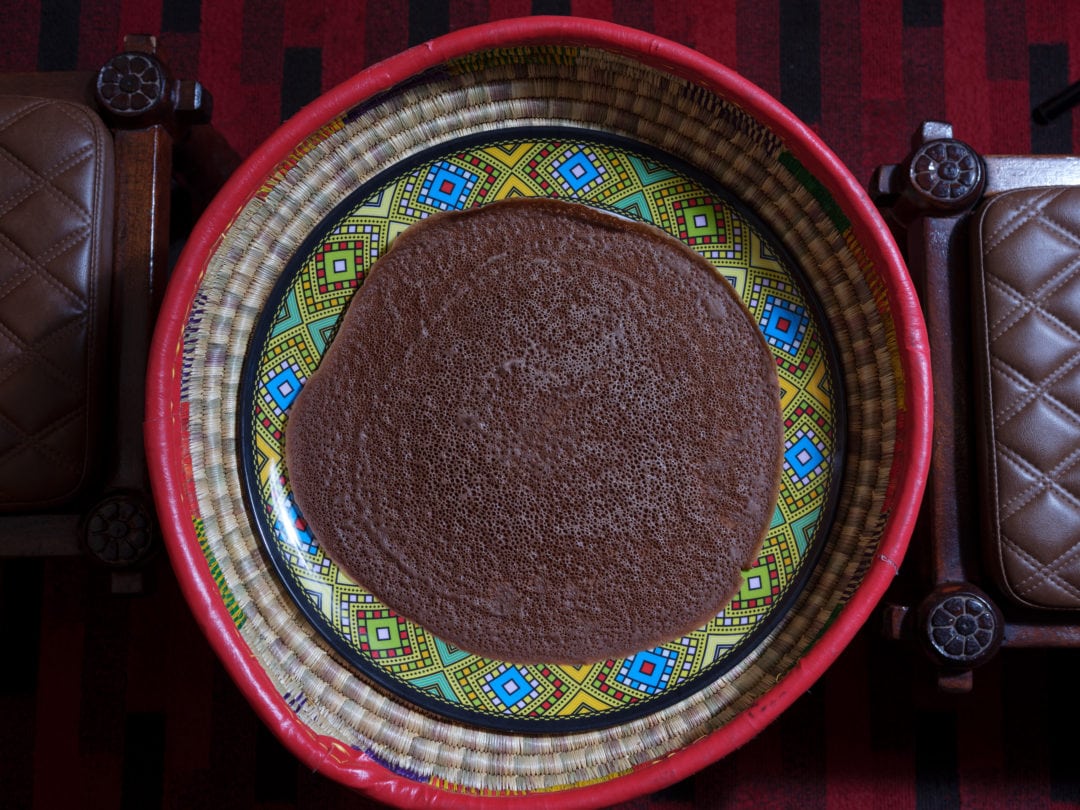
First up is the house speciality doro wat, a thick stew prepared with chicken, chilis, spiced ghee, and onions. Then we have azifa, brown lentils cooked with jalapeño, lemon, and onions. And lastly, my personal favorite, tikil gomen, a buttery, savory mix of turmeric-spiced cabbage and potatoes. I devour everything Anibal puts in front of me, alongside several glasses of iced yekemem chai, a wonderful black tea with a strong note of clove.
At the end of the meal, Anibal serves traditional Ethiopian coffee. This type of coffee utilizes Ethiopian grown beans that are dark roasted, steeped in hot water like tea, and then poured into very small, delicate cups. It provides a deep, robust flavor that is excellent, even without cream or sugar.
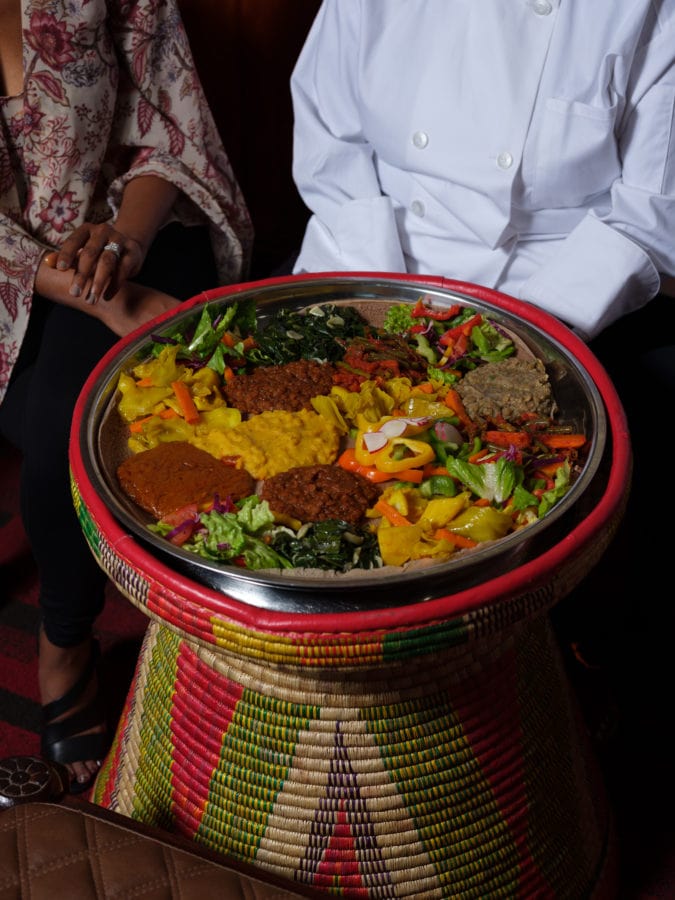
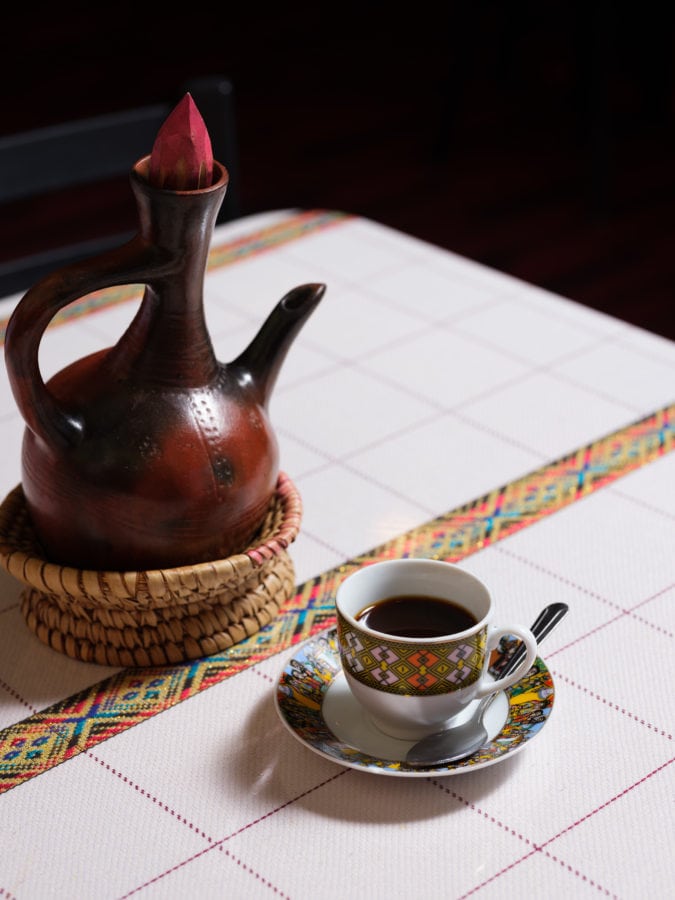
Tokens of wisdom
As we finish our food and sip our coffee, Anibal leaves me with some tokens of wisdom from his mother-in-law and beloved matriarch—pieces of advice that, in his opinion, have guided Café Lalibela from the beginning.
“First, Atsade has always said that before she can feed anyone else, she must feed her children,” Anibal says. This is a strong reference to the family’s belief that community is built from the inside out.
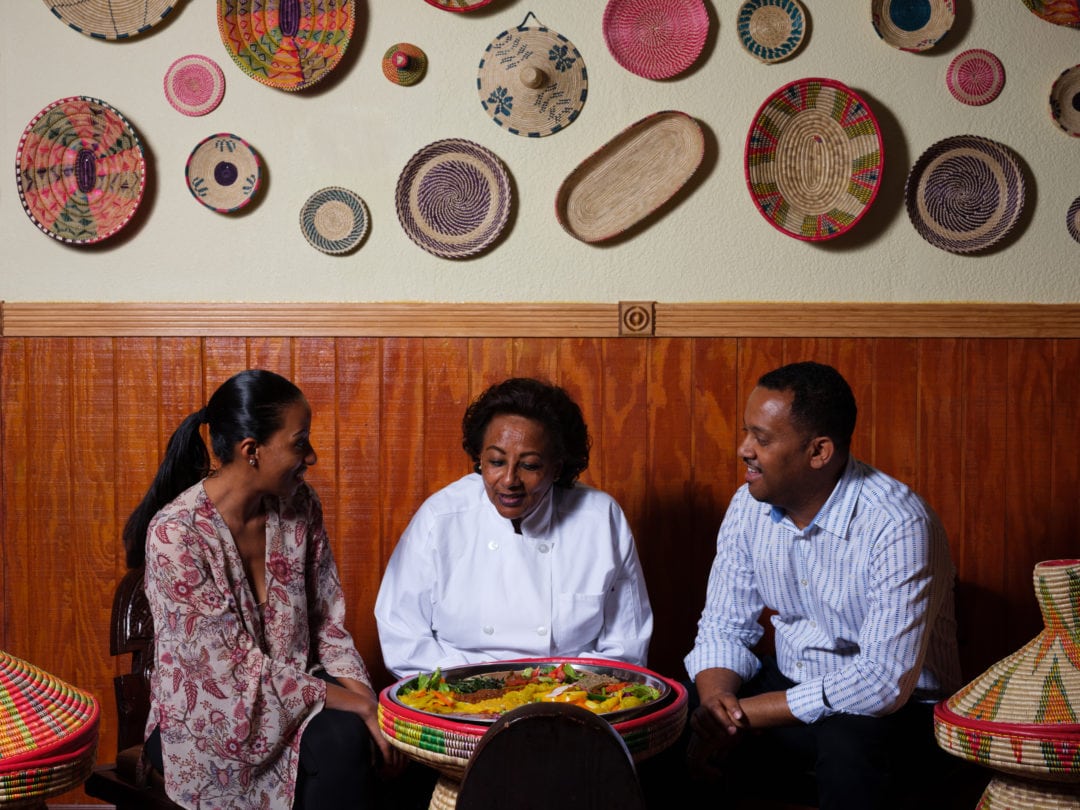
“Secondly, she says it is not possible to sell something you don’t love.” As Anibal tells me this, he seems to have a slightly confused grin on his face. “Can you imagine doing that? We love everything we make here.”
As I say goodbye to my gracious host and the rest of the family, and make my way toward the front door, I notice the cafe is still bustling with customers. It becomes abundantly clear to me that Tempe loves Café Lalibela as much as its owners do.
If you go
Café Lalibela in Tempe is open seven days a week. In addition to in-person dining, the restaurant also offers takeout and catering services. You can find a select number of Café Lalibela dishes for sale at local Whole Foods Markets and Natural Grocers.








